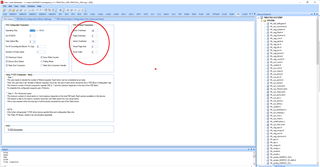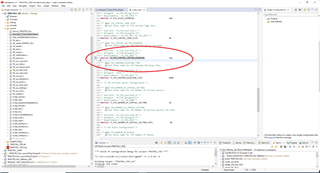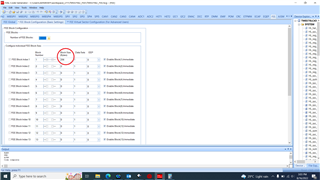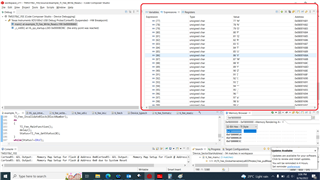Other Parts Discussed in Thread: HALCOGEN
I am trying to build a test program that accesses (fake?) EEPROM. I see that example_TI_Fee_Write_Read.c does that and am incorporating it in a project. I get the following error:
>> Compilation failure
source/subdir_rules.mk:9: recipe for target 'source/example_TI_Fee_Write_Read.obj' failed
"C:\Users\plu\Documents\TMS_XL2-570LC43-Examples\TMS570LC43_FEE\include\fee_interface.h", line 88: fatal error: cannot open source file "fee_cfg.h"
1 catastrophic error detected in the compilation of "../source/example_TI_Fee_Write_Read.c".
Compilation terminated.
gmake: *** [source/example_TI_Fee_Write_Read.obj] Error 1
**** Build Finished ****
which stems from fee_interface.h:
#include "ti_fee_cfg.h"
#if(TI_FEE_DRIVER == 0U) /* Include following macros only in Autosar Context */
#include "fee_cfg.h"
#include "nvm.h"
#define Fee_None 0x00U /* Take no action on single bit errors, (respond with corrected data), */
/* return error for uncorrectable error reads (multi bit errors for ECC or parity failures). */
/* For devices with no ECC (they may have parity or not) the only valid option is none. */
#define Fee_Fix 0x01U /* single bit "zero" error will be fixed by reprogramming, single bit "one" error */
/* will be fixed by marking the current entry as invalid and copying the data to a new entry,*/
/* return error for uncorrectable error reads (multi bit errors for ECC or parity failures). */
Is TI_FEE_DRIVER supposed to be 0 or none-0? If non-zero, then where is it set? If 0, then where is fee_cfg.h supposed to come from?
Thanks.





